About Us
LITTLE MINERS MONTESSORI IS
Well-established
Little Miners Montessori was established in August 2001. When we first opened our doors, we were located in the basement of the Creekside Christian Fellowship Church in Park City and had 36 students enrolled with two teachers.
Now Little Miners is housed in a gorgeous building in Silver Creek Estates and has fourteen outstanding teachers guiding and educating 120 students, in addition to six classrooms, a multipurpose room, a greenhouse, an art room, an office, several playgrounds, and a sports court. The school is situatedIn a quiet neighborhood surrounded by pastures of farm animals such as horses, goats, and donkeys. Little Miners offers a nurturing and peaceful environment for children ranging from 18 months to 9 years old.
Nestled in the valley of Park City, the Little Miners campus overlooks the Wasatch Mountain Range where the abundant outdoor playground of Summit County provides a truly inspiring learning environment.
OUR MISSION IS
Child-centered
Little Miners Montessori School encourages self-directed learning in a child-centered community that values peace, respect for others, and pleasure in individual differences.
OUR CURRICULUM IS BUILT UPON
The Montessori philosophy
founded by Dr. Maria Montessori over 100 years ago.
Dr. Montessori believed that the goal of early childhood education should not be to fill the child with facts from a pre-selected course of studies, but rather to cultivate their own natural desire to learn.
Learn more about Montessori education here:
Little Miners Montessori is built upon the educational legacy of Dr. Maria Montessori.
Dr. Montessori was the first female physician to graduate from the University of Rome Medical School. In 1907, she discerned a fundamental premise about children – all children are uniquely intelligent. As obvious this concept is today, it was unique for this time and continues to be innovative. Dr. Montessori’s focus on the whole child moves away from the traditional adult-centered classroom to an environment and methodology that is designed to facilitate the development of the child’s independence and sense of personal empowerment.
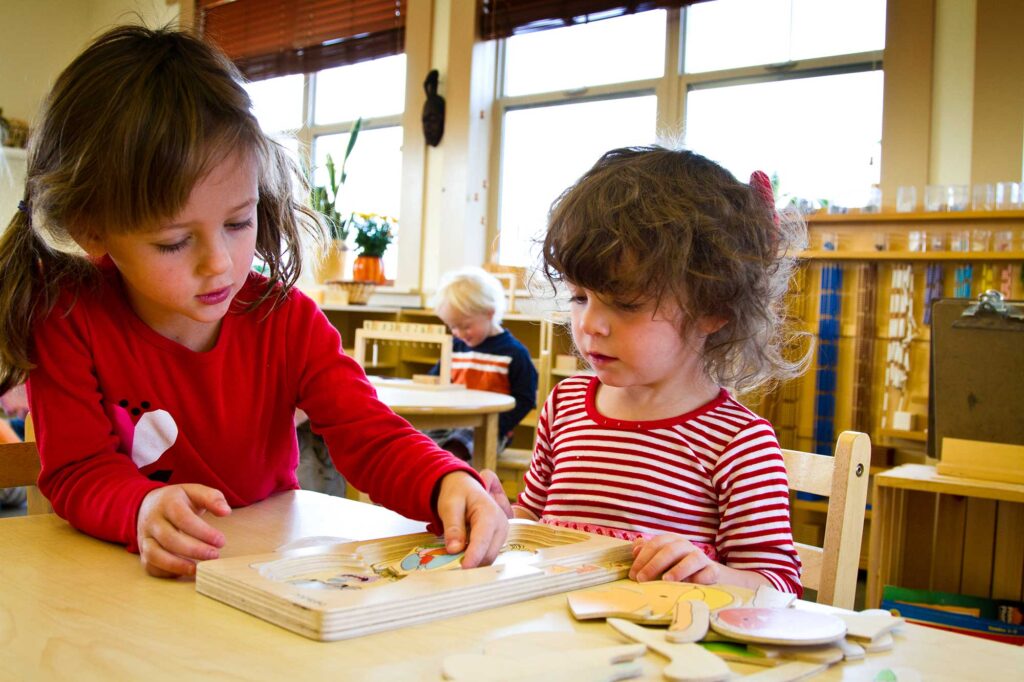
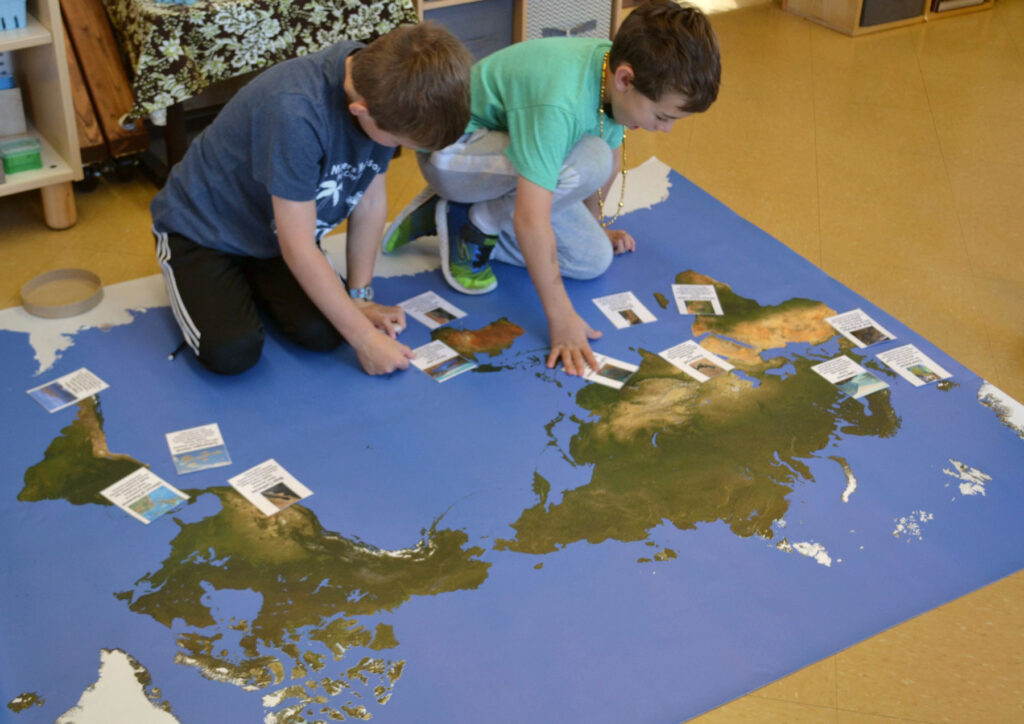
Little Miners blends the pedagogy of Montessori with current and state-of-the-art educational tools and resources.
Dr. Montessori believed that the goal of early childhood education should not be to fill the child with facts from a pre-selected course of studies, but rather to cultivate their own natural desire to learn.
In our classrooms this objective is approached in two ways:
- Children enter this world with a powerful drive to learn. Thus we allow each child to experience learning by their own choice, rather than being forced.
- Montessori sees learning as active, not passive. We view children as competent beings capable of self-directed discovery. In the classroom, students move from activity to activity – both independently and in groups-rather than sitting still passively learning. Teachers move around too, observing, guiding, facilitating – asking questions far more often than providing answers.
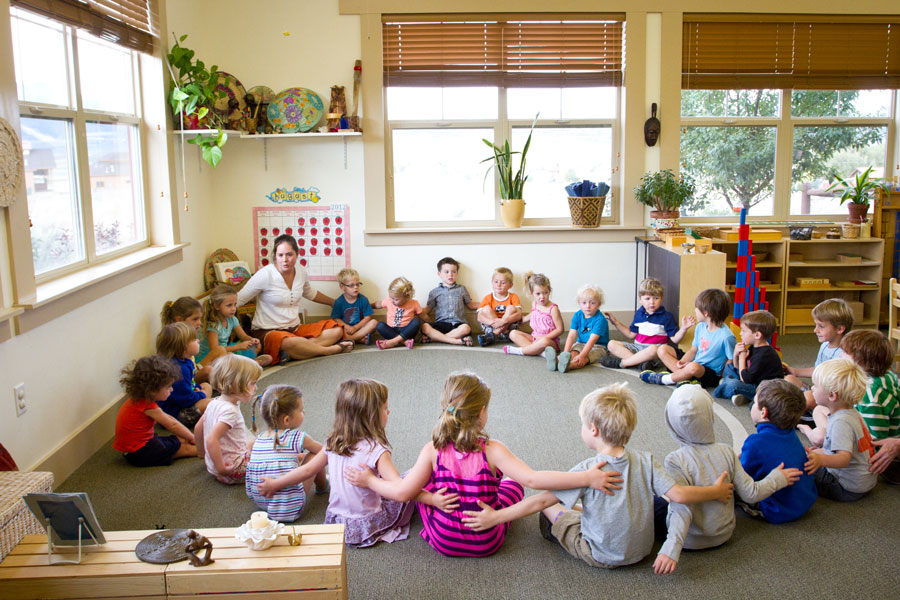
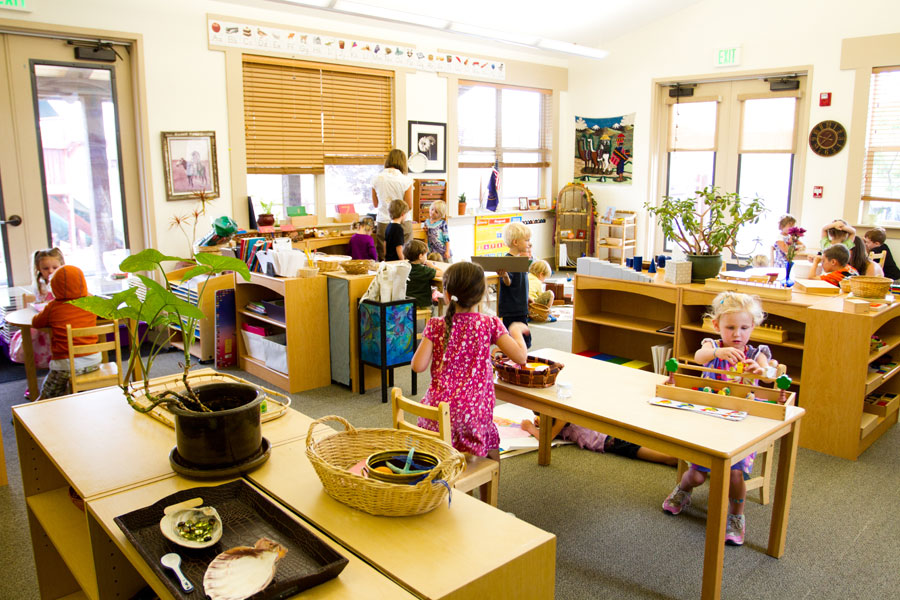
In a Montessori environment, children are able to learn at their own pace, according to their own interests.
Through their own work with specially designed materials, children learn and make their own discoveries. The end result yields confident and happy children who possess a love for learning and an ability to think on their own.
OUR PHILOSOPHY IS
to Enrich children’s lives
Little Miners Montessori was founded in 2001 with the intentions to cultivate a love of learning and provide an environment that nurtures each child’s individual process while connecting children to an educational and diverse community. LMM seeks to educate the whole child, applying the Montessori philosophy, in a family-oriented and child-centered environment. The philosophy is based on the principles of Dr. Maria Montessori (1870-1952) whose holistic vision of education focuses on the cognitive, social, emotional and physical needs of the child. Our goal at Little Miners Montessori is to help our children develop a positive self-image, a sense of responsibility in diverse settings, and inner self-discipline. By use of the Montessori Method, we promote the intellectual, physical, and social development of our students. As children develop independence and self-confidence, they foster a lifelong love for learning. And just as important, our children learn to respect each other and develop a collective sense of affection and cooperation with each other, their families, and the community.
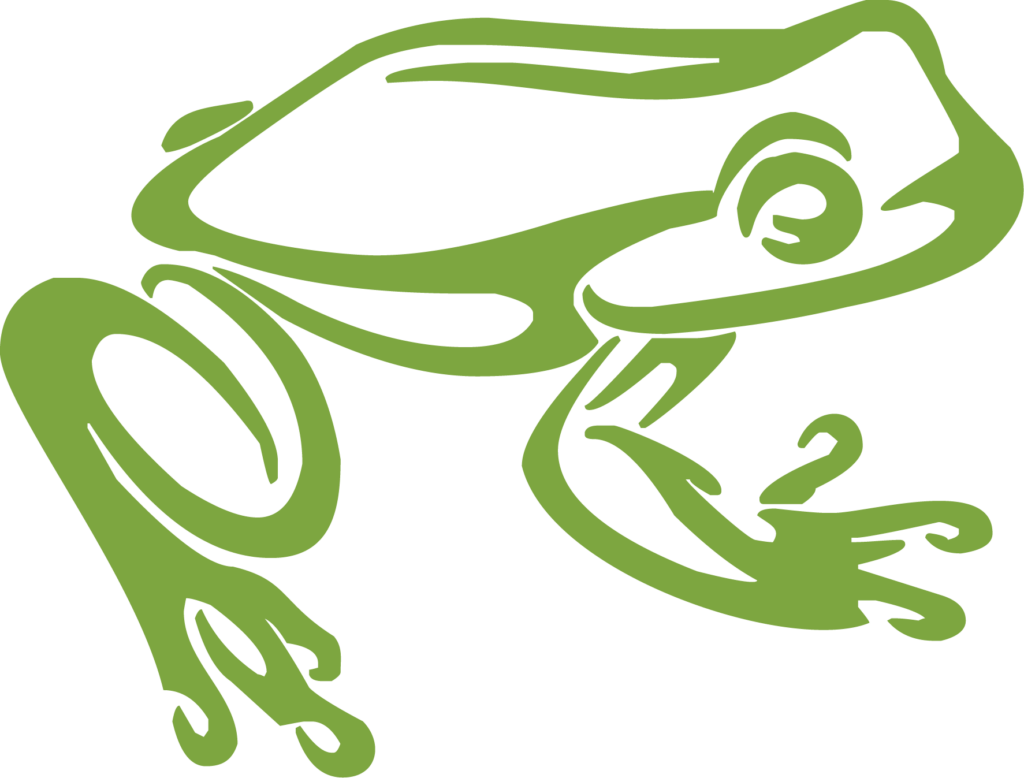
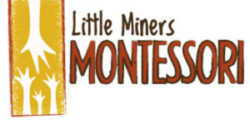
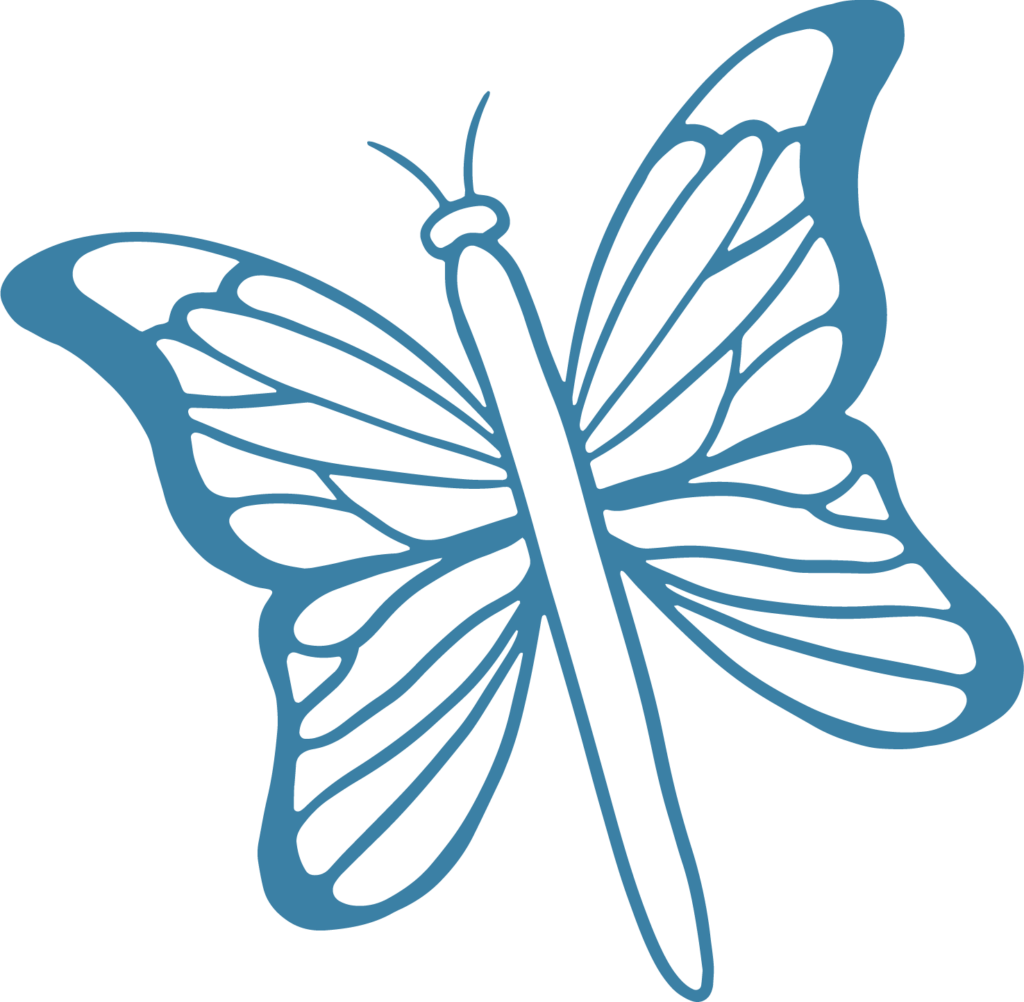
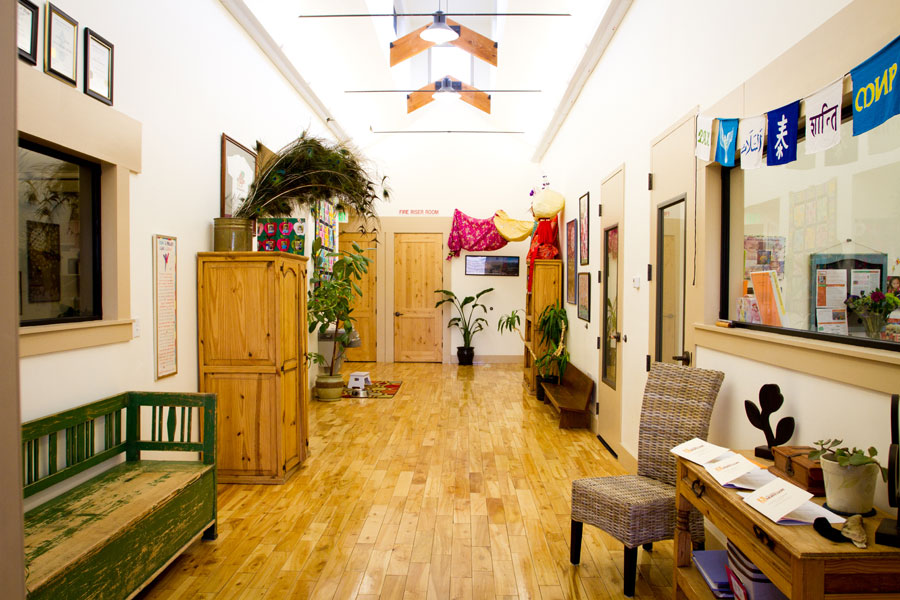
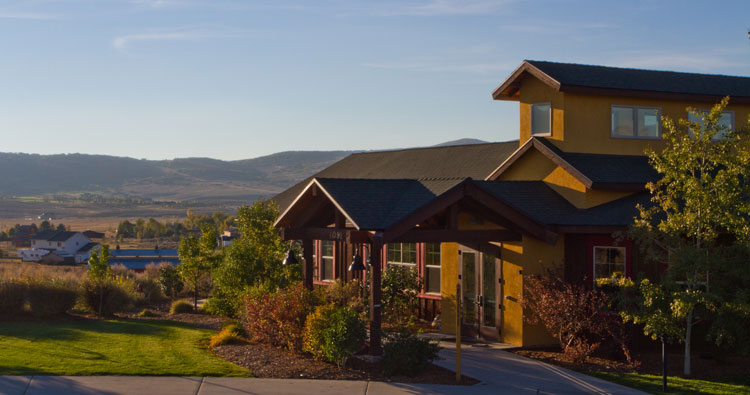



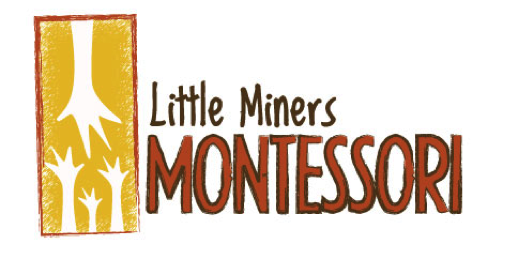
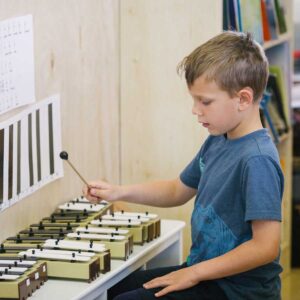
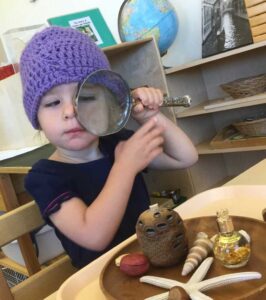
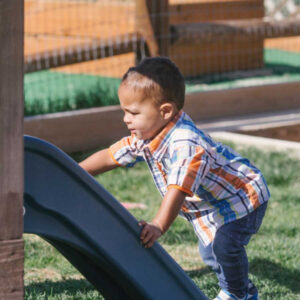





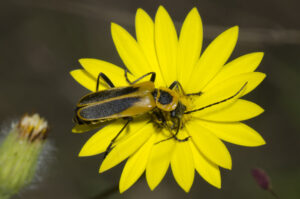

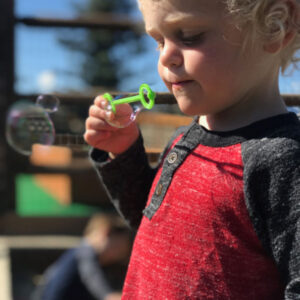
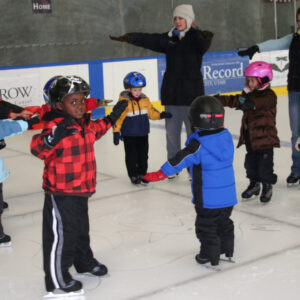

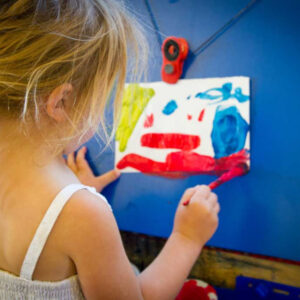
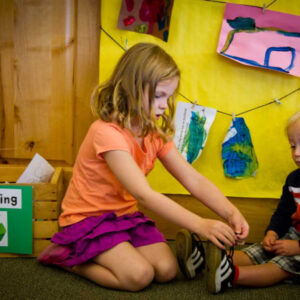
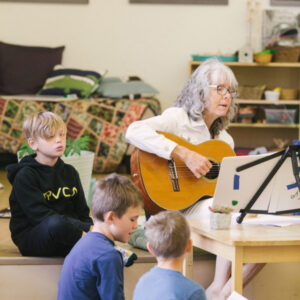
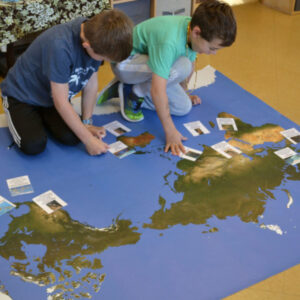
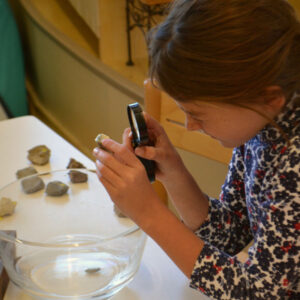
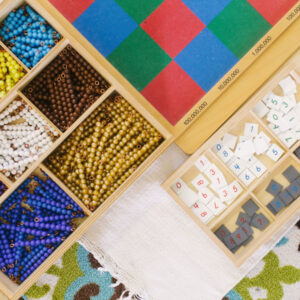
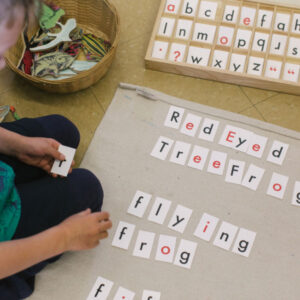
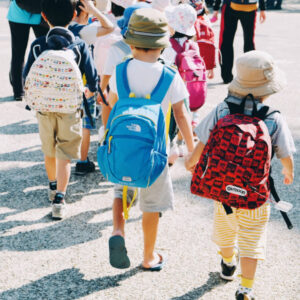
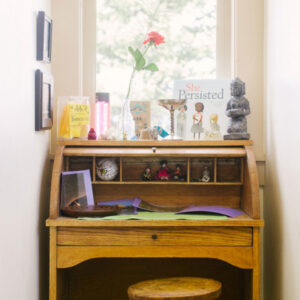
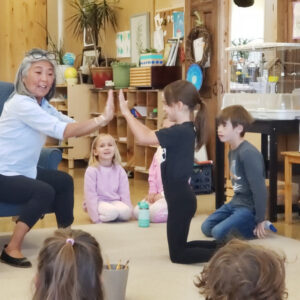
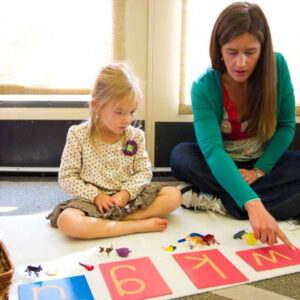 This is the culminating year of the Early-Childhood cycle which provides an extraordinary opportunity for the 5 and 6 year-olds to develop their leadership skills. Kindergartners act as positive peer models for their younger classmates. They enjoy their positions of responsibility that further strengthen their own capabilities and self-esteem. Everything that children have learned in the previous years as a Montessori student, come together in the Kindergarten year. These children are ready to meet new challenges with confidence and determination.
This is the culminating year of the Early-Childhood cycle which provides an extraordinary opportunity for the 5 and 6 year-olds to develop their leadership skills. Kindergartners act as positive peer models for their younger classmates. They enjoy their positions of responsibility that further strengthen their own capabilities and self-esteem. Everything that children have learned in the previous years as a Montessori student, come together in the Kindergarten year. These children are ready to meet new challenges with confidence and determination.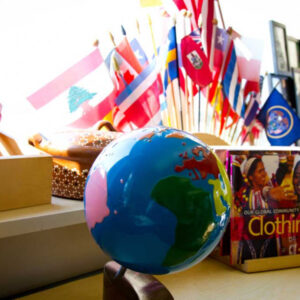 Geography in the Montessori classroom is a true celebration of the world’s diversity as well as it’s common threads. Children gain a deeper global perspective as they are introduced to land forms, continents, and study of the earth’s formation. The Geography curriculum begins with the two hemispheres of the Earth and becomes more detailed as children learn about the continents and the countries.
Geography in the Montessori classroom is a true celebration of the world’s diversity as well as it’s common threads. Children gain a deeper global perspective as they are introduced to land forms, continents, and study of the earth’s formation. The Geography curriculum begins with the two hemispheres of the Earth and becomes more detailed as children learn about the continents and the countries.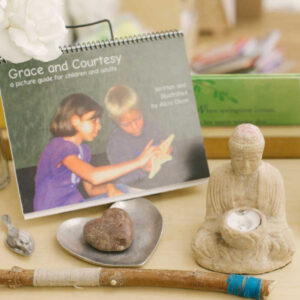 Perhaps the most critical life skill of all for children to master is the ability to work and play with others in a peaceful and caring way. Treating others with dignity and respect are cornerstones of the Montessori philosophy and are taught through Grace and Courtesy exercises.
Perhaps the most critical life skill of all for children to master is the ability to work and play with others in a peaceful and caring way. Treating others with dignity and respect are cornerstones of the Montessori philosophy and are taught through Grace and Courtesy exercises.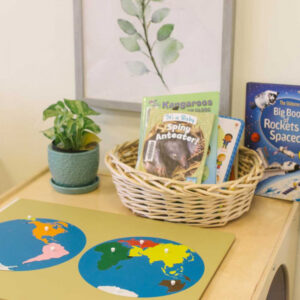 The Cultural area of the Montessori classroom can and should be as broad and varied as the world in which we live. Cultural Studies extend into the Practical Life, Sensorial, Math, and Language areas of the classroom and allow for further exploration with interesting and unique activities. The Cultural Area includes music, art, geography, history, ecology, geology, botany, zoology, and the physical sciences. These “key experiences” provide the child with a sense of wonder through sensorial experiences, literature, music, activities, and artifacts from all around the world. The Montessori classroom encourages exploration and curiosity to define a sense of self and the spirit of the people of the world.
The Cultural area of the Montessori classroom can and should be as broad and varied as the world in which we live. Cultural Studies extend into the Practical Life, Sensorial, Math, and Language areas of the classroom and allow for further exploration with interesting and unique activities. The Cultural Area includes music, art, geography, history, ecology, geology, botany, zoology, and the physical sciences. These “key experiences” provide the child with a sense of wonder through sensorial experiences, literature, music, activities, and artifacts from all around the world. The Montessori classroom encourages exploration and curiosity to define a sense of self and the spirit of the people of the world.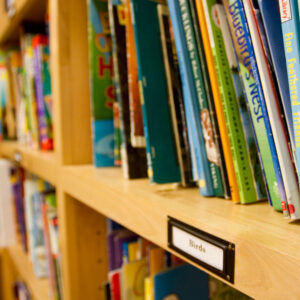 Maria Montessori observed that the potential exists for children to develop the higher language skills of reading and writing with the same ease with which they acquire oral speech. This “explosion” into literacy occurs naturally in the primary years if children are presented with the tools and experiences needed to nourish this organic inclination to learn.
Maria Montessori observed that the potential exists for children to develop the higher language skills of reading and writing with the same ease with which they acquire oral speech. This “explosion” into literacy occurs naturally in the primary years if children are presented with the tools and experiences needed to nourish this organic inclination to learn.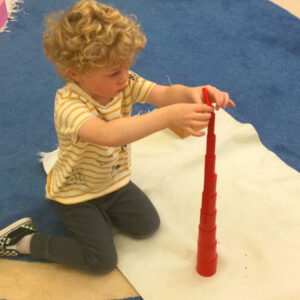 The Sensorial materials are critical for academics in the Montessori classroom. These activities begin with the youngest children in the class. Through various extensions and games they remain interesting to even the oldest children. The Sensorial materials build on the Practical Life activities and prepare the child for math and language through lessons in observation and problem solving.
The Sensorial materials are critical for academics in the Montessori classroom. These activities begin with the youngest children in the class. Through various extensions and games they remain interesting to even the oldest children. The Sensorial materials build on the Practical Life activities and prepare the child for math and language through lessons in observation and problem solving.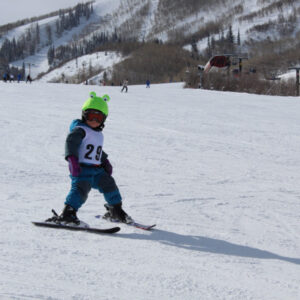 Little Miners offers Yoga, Ski, Ice Skating, Stretch & Grow, as well as plenty of outdoor time.
Little Miners offers Yoga, Ski, Ice Skating, Stretch & Grow, as well as plenty of outdoor time.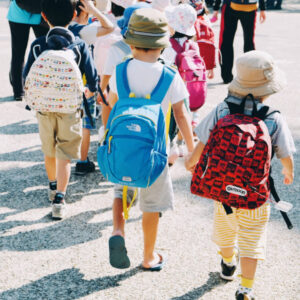 Info Coming Soon.
Info Coming Soon.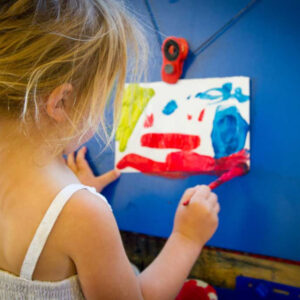 Art and music represent ways to communicate, ideas, imagination, culture, and humanity. Just as a child requires skills to write or dance or swim, she needs to also be given the tools and techniques to create her own masterpieces.
Art and music represent ways to communicate, ideas, imagination, culture, and humanity. Just as a child requires skills to write or dance or swim, she needs to also be given the tools and techniques to create her own masterpieces.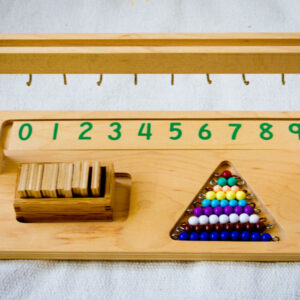 A carefully sequenced progression of mathematical activities from concrete to more abstract materials, simple to increasingly complex operations and lastly, tools for memorization of facts ensure a child’s whole brain development. The process and problem solving are first and foremost. Movement, active participation, and opportunities to problem solve, stimulate all four lobes of the brain, and nourish the child’s interest. Dr. Montessori created math materials that spark the imagination of the eagerly curious child.
A carefully sequenced progression of mathematical activities from concrete to more abstract materials, simple to increasingly complex operations and lastly, tools for memorization of facts ensure a child’s whole brain development. The process and problem solving are first and foremost. Movement, active participation, and opportunities to problem solve, stimulate all four lobes of the brain, and nourish the child’s interest. Dr. Montessori created math materials that spark the imagination of the eagerly curious child.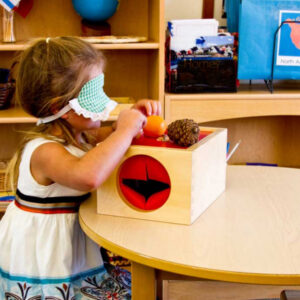 Sensorial activities assist Toddlers in the great task of organizing, integrating and learning about their sensory input. The sensorial materials are designed to simplify learning and awareness of the environment by isolating difficulty; isolating the senses; encouraging mastery through repetition; possessing self-correction within the material; and presenting an attractive appearance to the child.
Sensorial activities assist Toddlers in the great task of organizing, integrating and learning about their sensory input. The sensorial materials are designed to simplify learning and awareness of the environment by isolating difficulty; isolating the senses; encouraging mastery through repetition; possessing self-correction within the material; and presenting an attractive appearance to the child.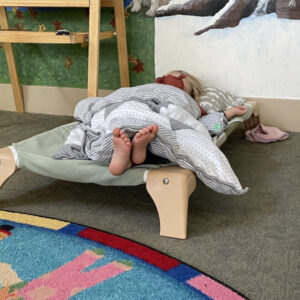 For those children enrolled in the full day schedule nap time will begin around 1:00PM following lunch, recess, and a pre-nap story time. LMM will provide a separate sleeping cot or a pop-out tent for each child.
For those children enrolled in the full day schedule nap time will begin around 1:00PM following lunch, recess, and a pre-nap story time. LMM will provide a separate sleeping cot or a pop-out tent for each child.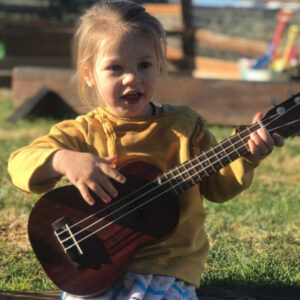 Music & Movement
Music & Movement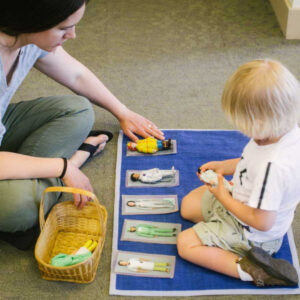 Around the age of two, children’s speech development experiences an explosion of words, soon followed by sentences. The Language materials in the Toddler classroom encourage the refinement and enrichment of language as the first steps on the road to writing and finally reading. Early Language materials and oral exercises like storytelling and reading aloud support the toddler’s need to be immersed in language. Activities include books, puzzles, naming objects like fruits, vegetables and animals, and beginning sound games.
Around the age of two, children’s speech development experiences an explosion of words, soon followed by sentences. The Language materials in the Toddler classroom encourage the refinement and enrichment of language as the first steps on the road to writing and finally reading. Early Language materials and oral exercises like storytelling and reading aloud support the toddler’s need to be immersed in language. Activities include books, puzzles, naming objects like fruits, vegetables and animals, and beginning sound games.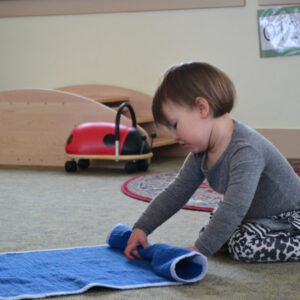 These are the first exercises introduced to the children. They create the foundation upon which all other work in the classroom depends. Practical Life exercises include care of self and the environment, as well as the development of large and fine motor control. These practical experiences in everyday activities are the cornerstone of the Montessori Method.
These are the first exercises introduced to the children. They create the foundation upon which all other work in the classroom depends. Practical Life exercises include care of self and the environment, as well as the development of large and fine motor control. These practical experiences in everyday activities are the cornerstone of the Montessori Method.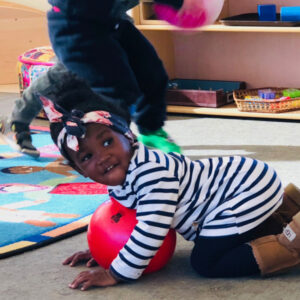 Little Miners has recently partnered our Toddler Program with Stretch-n-Grow of Utah! On Tuesdays and Wednesdays, our toddlers enjoy a 30-minute session of exercising with this fun company. Here is an excerpt from their website about Stretch-n-Grow:
Little Miners has recently partnered our Toddler Program with Stretch-n-Grow of Utah! On Tuesdays and Wednesdays, our toddlers enjoy a 30-minute session of exercising with this fun company. Here is an excerpt from their website about Stretch-n-Grow: